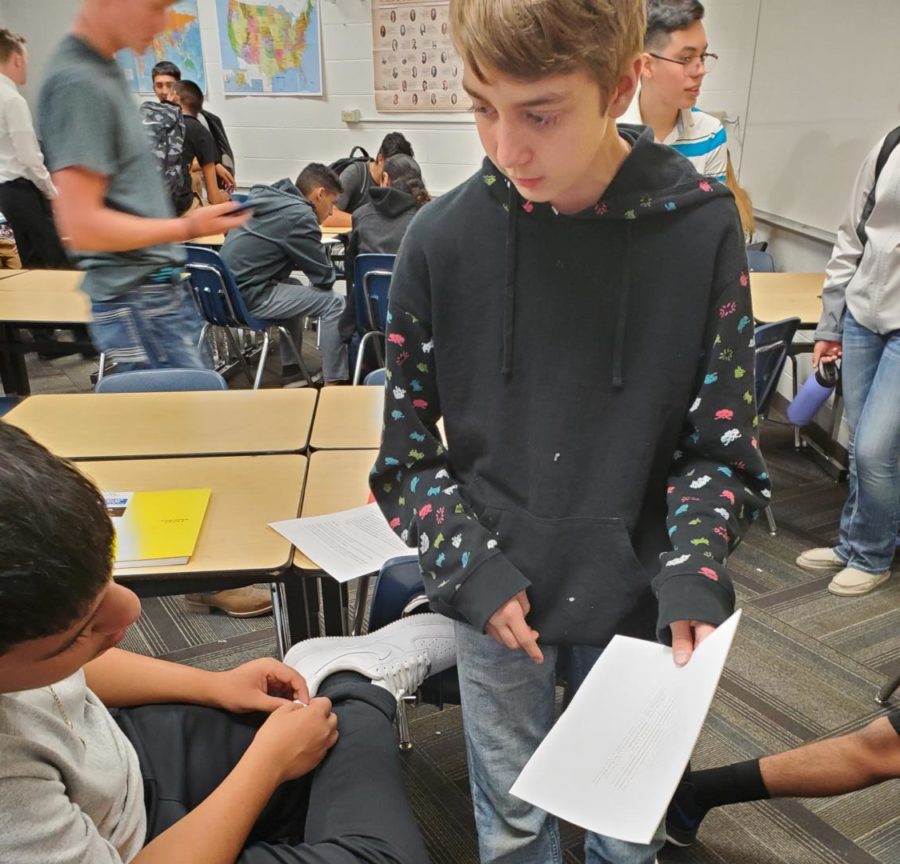Collective bargaining simulation provides perspective on Industrial Revolution unit
Sophomore Rowan Haskell leads a discussion about how labor unions can increase worker wages.
September 26, 2019
Greeley West sophomores got an opportunity to bring history to life through a special activity in their US History class this week.
Mr. Joseph Swanson’s class has been exploring the Industrial Revolution and the rise of worker unions in a time when the practice was unconstitutional and could leave workers without a job. However, such unions were able to create a force that could leverage for the greater good of the workers.
On Tuesday, students in the class were able to apply these historical concepts to an activity incorporating real-life examples. The kids were instructed that they were a part of either a make believe company called Mountain West Appliances or the Communications Workers of America (CWA), a real union which exists today. The goal was to debate maintaining normal pay or to set at minimum wage today in the year 2019.
Swanson explained, “The students are talking about industrialization, where people were making a lot of money off of people who make almost nothing and live in poor conditions. The kids are responsible for coming up with a new Collective Bargaining Agreement to replace the one that is soon to expire. The two sides will then go against each other to hopefully meet on one together.”
With any new and unique assignment, students seemed slightly lost at first. But as they got into the activity, light bulbs began to go off. Connections were drawn between the past and present, which helped demonstrate the need for historical knowledge.
For student Rowan Haskell he though, “The activity is helpful to show the debates between management and the experience the workers went through.”
The students worked in groups – half the class represented the unions while the other half was management. By the end of class, the two groups had to collectively come to a reasonable agreement for a contract for the workers.
Activities such as this one allows for deeper understanding of topics in the classroom taking learning a step further than traditional notes and providing skills students may even use in the future.




